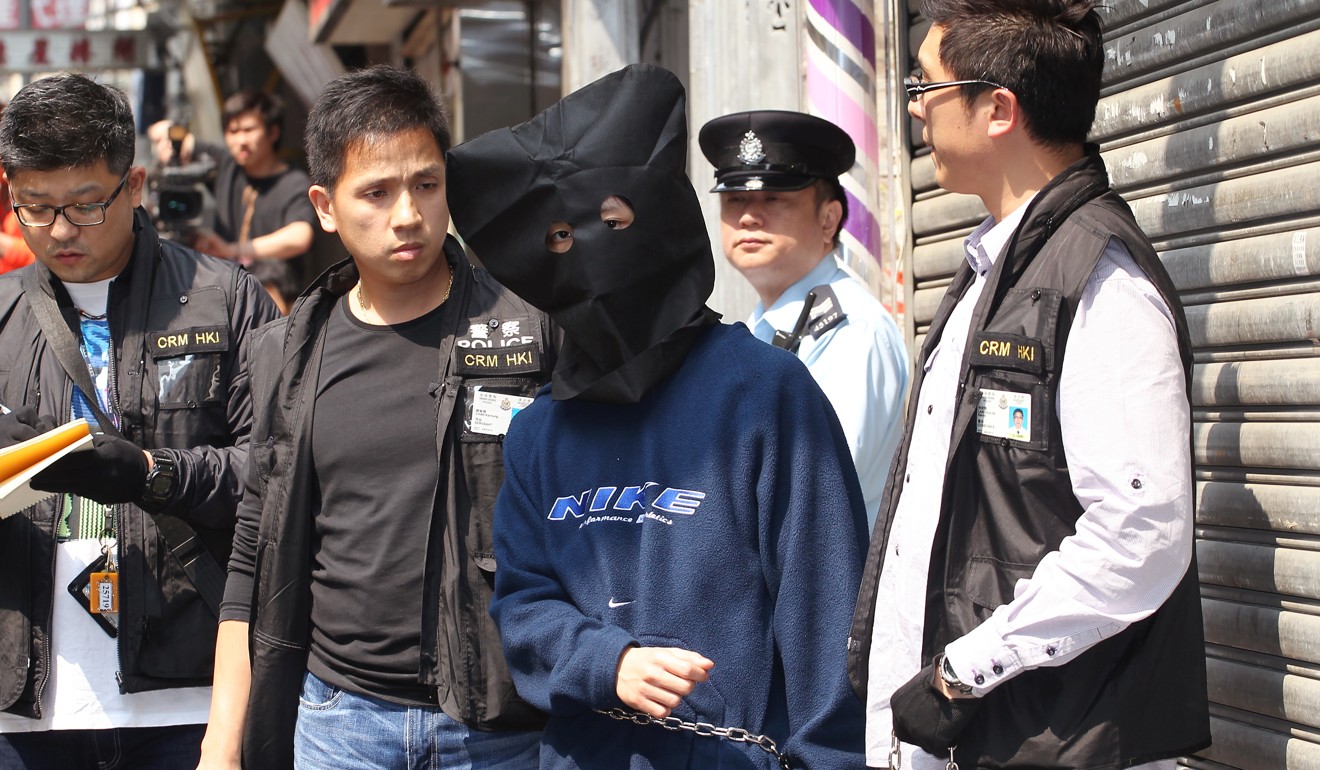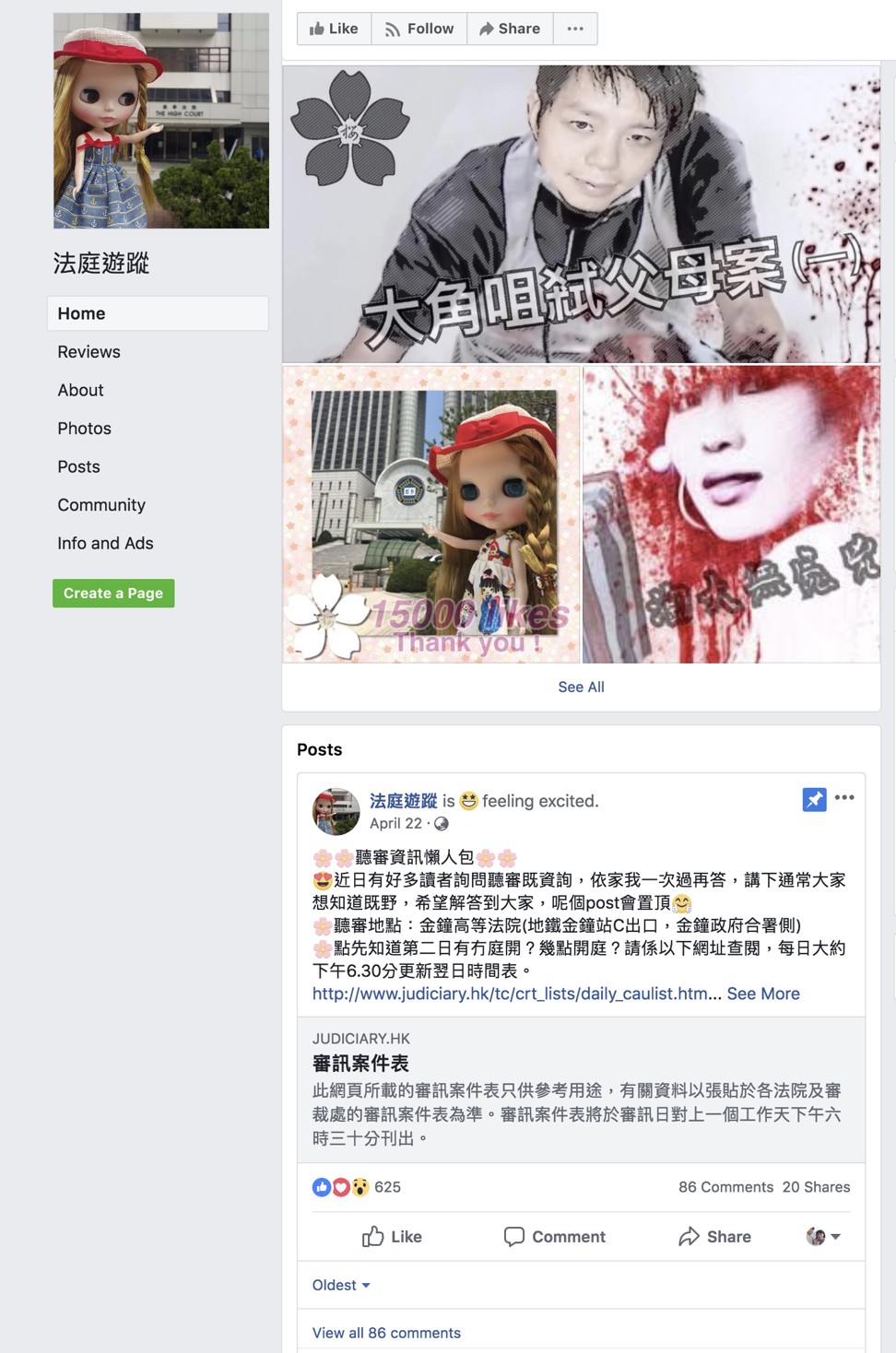
Murder, she wrote: Hong Kong woman behind Facebook page on court hearings reveals interest in dark side of human nature
Sakura’s frequent visits to court trials and her reports on juicy case details have captivated the public and earned her tens of thousands of followers
Unlike most people, Sakura, a 32-year-old writer who only wants to go by her pen name, is intrigued instead of disturbed by gruesome crime images of dismembered corpses. The graphic photos trigger an insatiable curiosity in her to know more about the stories behind the bodies.
Although already a fan of TV crime thrillers such as TVB’s The File of Justice, only true crime stories heard in court satisfy her fascination with murder cases.

Five years ago, she made her first court visit in the public gallery at the homicide trial of Henry Chau Hoi-leung. The 28-year-old was accused of killing his parents, chopping them up and keeping their heads in a fridge. Chau was convicted and jailed for life in 2015.
Eager to find out more at the height of public fascination with the macabre case, Sakura visited the trial regularly – three to four times a week – and scribbled details on a yellow notepad which she later typed into her computer.
Her friends encouraged her to start a blog and share salacious court details that were not covered by the press. In just a year, her court reporting page on Facebook had 20,000 followers. The name of her page translates from Chinese into “The Court Wanderer”.
Son who chopped up parents and kept heads in the fridge jailed for life
“The public likes complicated crimes,” says Sakura, who prefers not to reveal her identity and claims to work as a freelance writer. “The more gruesome and violent, the more popular it is.”
Unshackled by word count and other limitations that bind mainstream media, she could present her information in any format she desired.
Another hearing centred on a finance company director accused of killing his lover in an Amoy Gardens flat, although the body was never found.
In recent years, Sakura has also received mounting requests to cover the surging number of child abuse cases. She says the public’s curiosity revolves around how parents can bear to harm their young and defenceless children.
“It’s really cruel because they are too young,” she says of such cases, which she finds especially disturbing.
She recalls a case three years back in which a five-year-old girl was sexually abused by her father for two years after her mainland Chinese mother was expelled from the city for illegally collecting and selling cans on the street to make ends meet.
Through a court video conferencing system, the young victim, using a child’s vocabulary, detailed how the abuse would begin every evening, when it was time for the news on TV. Her experience was marked by the introductory music to the programme.
The child’s graphic descriptions of her suffering moved Sakura to tears.
After being exposed to the darkest side of human nature, she says she sometimes feels depressed or has nightmares, but these feelings do not discourage her from striving to describe the accused in a fair manner in all her court reports.

“I understand the responsibility behind every word I write,” she says. “I write neutrally and let the readers judge for themselves.”
While others often assume she is a law student or court reporter, Sakura says she has never received legal training. Through her writing, she has built her own archive of knowledge, and reinforces her acumen by reaching out to lawyers after hearings to clarify concepts.
I understand the responsibility behind every word I write
Over the years, Sakura says her court visits have turned her into a rational thinker who analyses problems based on facts and evidence.
“Human beings are born to be subjective, but we should learn to be objective,” she adds.
Many friends have encouraged her to pursue a law degree, but she insists on drawing a line between her career and interest. The latter enables her to indulge in a stress-free activity and share her passion with readers.
Although murder cases top her list, Sakura attends almost all types of hearings, including drug trafficking trials that many might consider boring. Apart from her increasing legal knowledge, she also sees all sides of humanity and learns about criminal psychology.
She says the most challenging cases to follow are those involving mental disorders, as doctors in court debate psychiatric terminology.
Suspected child abuse death to be treated as murder, Hong Kong police say
“This is not some grand mission, but I want to inspire others to take the first step into the courtroom. There is so much worth learning.”
She says many Hongkongers who have never set foot in a courtroom regard it as a mysterious and intimidating place, adding that readers have asked her to accompany them there on their first visit.
She advises would-be court visitors to always observe rules, such as rising when the judge enters, and not taking photos or chatting during the session.
“I have developed a sense of belonging to the city’s courts,” she says. “I feel a strong need to protect the place.”


